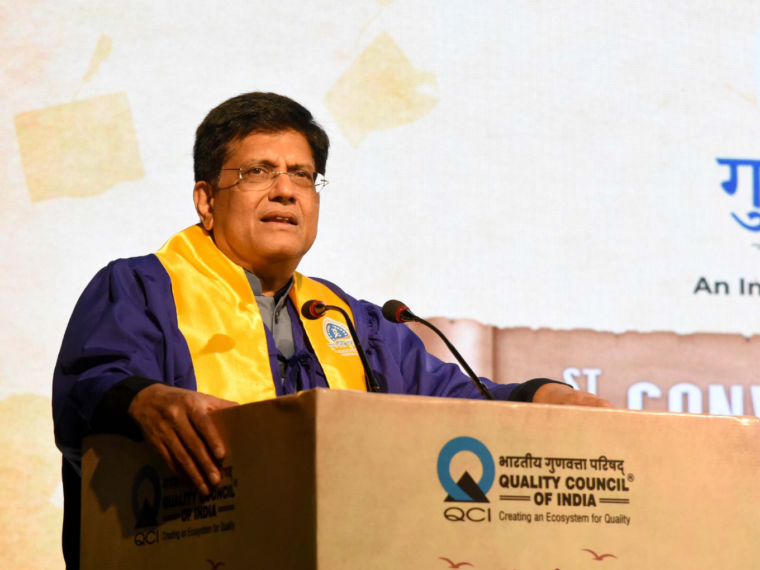SUMMARY
Goyal said that it would be difficult to “justify” exempting certain companies from paying taxes solely for moving back to India
Goyal said that many homegrown companies “went outside” out of their own “selfishness” and their return back to the country was not an “altruistic move”
The development comes at a time when several Indian unicorns including Zepto, Groww, Meesho, Pine Labs, Razorpay and Eruditus are mulling moving their headquarters back home
Union commerce minister Piyush Goyal on Friday (March 29) reportedly said that Indian startups mulling reverse flipping will have to bear tax liabilities.
As per The Economic Times, Goyal said that it would be difficult to “justify” exempting certain companies from paying taxes solely for moving back to India.
Putting the onus directly on startups, he added that many homegrown companies “went outside” out of their own “selfishness” and their return back to the country was not an “altruistic move”.
“These companies went outside for their own selfishness…not because of any pressure or other reason. They wanted to do better tax planning…they enjoyed that benefit. Why they want to come back is not an altruistic motive. They want to list in India because here’s where you get the valuations. India’s growth story is unparalleled in the world and that’s why they want to come here,” Goyal reportedly said.
The development comes at a time when several Indian unicorns, including Zepto, Groww, Meesho, Pine Labs, Razorpay and Eruditus are mulling moving their headquarters back home.
Meanwhile, Goyal also noted that the tax bill (on account of reverse flipping) would be paid from the income on which the startups initially saved taxes.
“So if they have to pay tax, it’s good. It’ll help us give more scholarships to poor children or build homes for the poor or replace the slums with proper housing. We have a lot of plans for this country and the tax they are paying is from their income on which they initially saved tax,” Goyal told ET.
Speaking about the issue of angel taxes which directly impact startups, the minister said that valuation norms were brought in to rein in “fly-by-night companies” that were being used for hawala transactions or “creating capital”.
“That was the reason that taxes were brought in…and valuation norms have to be there. There is an indirect impact on startups…so we have to balance the two. If we totally open it up, then the startup issue will be resolved but the problem of the other sort will start again,” he said.
The comments come at a time when several Indian startups, domiciled in the US and Singapore, have set their eyes on returning to India to realise their IPO dreams. As a result, many of these companies have been urging the Centre to ease regulatory processes and reduce tax liabilities for those mulling such as move.
The issue came into the limelight in late 2022 after Walmart-backed digital payments juggernaut PhonePe paid $800 Mn in taxes to the Indian government to move their headquarters back to India. This came right after the fintech company was hived off from ecommerce giant Flipkart as a separate entity.
Disclaimer
We strive to uphold the highest ethical standards in all of our reporting and coverage. We StartupNews.fyi want to be transparent with our readers about any potential conflicts of interest that may arise in our work. It’s possible that some of the investors we feature may have connections to other businesses, including competitors or companies we write about. However, we want to assure our readers that this will not have any impact on the integrity or impartiality of our reporting. We are committed to delivering accurate, unbiased news and information to our audience, and we will continue to uphold our ethics and principles in all of our work. Thank you for your trust and support.



![[CITYPNG.COM]White Google Play PlayStore Logo – 1500×1500](https://startupnews.fyi/wp-content/uploads/2025/08/CITYPNG.COMWhite-Google-Play-PlayStore-Logo-1500x1500-1-630x630.png)